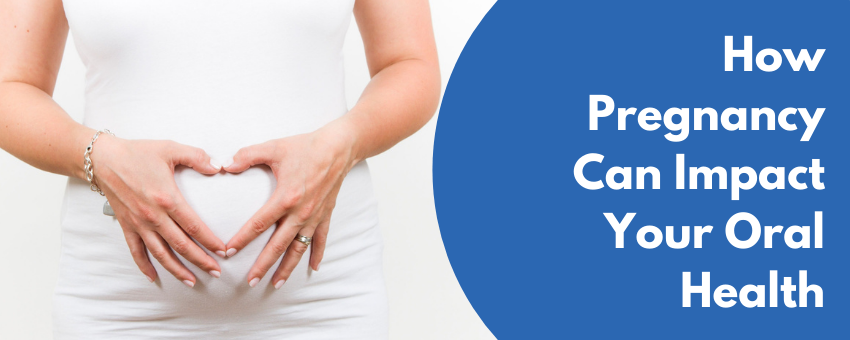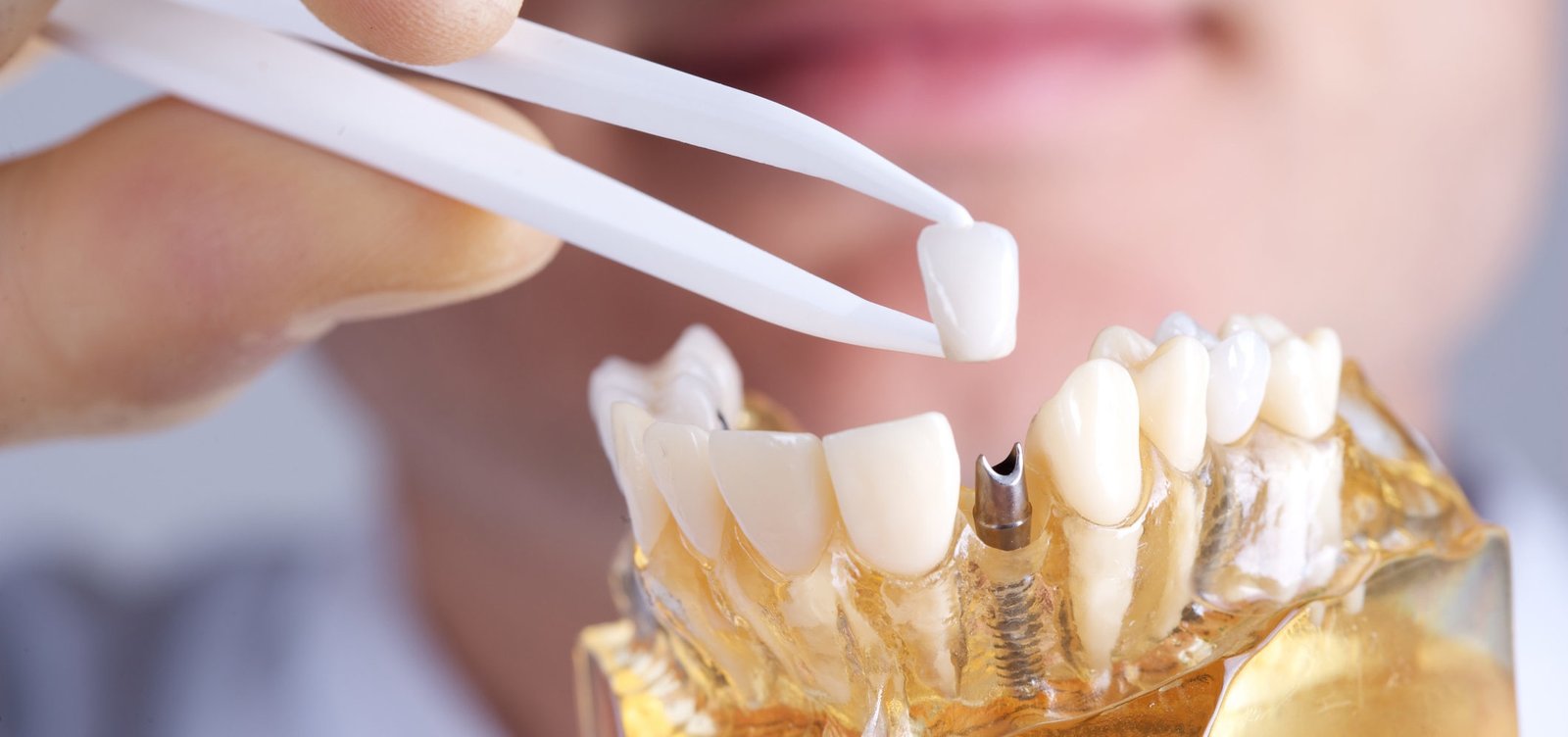Pregnancy is an exciting time for many women, but it can also have an impact on your oral health. During pregnancy, hormonal changes can increase the risk of developing dental problems, such as gum disease and tooth decay. It is important to maintain good oral hygiene habits and visit your dentist regularly to ensure your teeth and gums stay healthy. This article will discuss how pregnancy can affect your oral health and provide tips on how to keep your mouth healthy during this special time.
The Effects of Hormonal Changes on Oral Health During Pregnancy
Pregnancy is a period of great change for a woman’s body, and the effects of hormonal changes on oral health during this time can be significant. Hormonal changes during pregnancy can lead to a variety of oral health issues, including an increased risk of gum disease, tooth decay, and other oral health problems.
Gum Disease
One of the most common oral health issues during pregnancy is gum disease, also known as periodontal disease. During pregnancy, the body’s hormones cause the gums to become more sensitive and prone to inflammation. This can lead to red, swollen, and tender gums that are more prone to bleeding. The increased risk of gum disease is due to the increased levels of progesterone and estrogen in the body, which can cause the gums to become more sensitive and vulnerable to bacteria.
Tooth Decay
Hormonal changes during pregnancy can also lead to an increased risk of tooth decay. Pregnant women are more likely to experience dry mouth, which can lead to an increased risk of tooth decay. Dry mouth is caused by a decrease in saliva production, which can leave the teeth vulnerable to bacteria and acid. Additionally, the increased levels of progesterone and estrogen can cause an increase in the production of plaque, which can also lead to an increased risk of tooth decay.
Other Oral Health Issues
In addition to gum disease and tooth decay, hormonal changes during pregnancy can also lead to other oral health issues. For example, pregnant women may experience an increase in the number of cavities, as well as an increased risk of developing canker sores and other mouth sores. Additionally, pregnant women may experience an increase in the sensitivity of their teeth, as well as an increased risk of developing oral thrush.
Preventative Care
It is important for pregnant women to take steps to protect their oral health during this time. Regular brushing and flossing are essential for preventing gum disease and tooth decay. Additionally, pregnant women should visit their dentist for regular check-ups and cleanings, as well as any necessary treatments. Additionally, pregnant women should avoid sugary and acidic foods and drinks, as these can increase the risk of tooth decay.
Overall, hormonal changes during pregnancy can have a significant effect on oral health. It is important for pregnant women to take steps to protect their oral health during this time, such as brushing and flossing regularly, visiting the dentist for regular check-ups and cleanings, and avoiding sugary and acidic foods and drinks. By taking these steps, pregnant women can help to ensure that their oral health remains in good condition throughout their pregnancy.
The Role of Nutrition in Maintaining Oral Health During Pregnancy
Maintaining good oral health during pregnancy is essential for both the mother and the unborn baby. Nutrition plays a key role in promoting and preserving oral health during pregnancy. Nutritional deficiencies can lead to a number of oral health problems, such as gum disease, tooth decay, and bad breath.
A balanced diet is important for pregnant women, as it helps to ensure that the body is receiving all the essential nutrients it needs. Eating a variety of foods from all the food groups is important, as this will help to ensure that the body is receiving a wide range of vitamins and minerals. Eating plenty of fresh fruits and vegetables is also important, as these are rich in vitamins and minerals that are essential for oral health.
Calcium is an important mineral for oral health, as it helps to strengthen teeth and bones. Pregnant women should ensure that they are getting enough calcium in their diet, as this can help to prevent tooth decay and gum disease. Dairy products, such as milk, cheese, and yogurt, are good sources of calcium. Other sources of calcium include green leafy vegetables, nuts, and fortified foods.
Vitamin C is also important for oral health, as it helps to protect the gums and prevent gum disease. Vitamin C can be found in citrus fruits, such as oranges and lemons, as well as in vegetables, such as broccoli and spinach.
Folic acid is another important nutrient for pregnant women, as it helps to prevent birth defects. Folic acid can be found in leafy green vegetables, legumes, and fortified foods.
It is also important for pregnant women to limit their intake of sugary and acidic foods, as these can increase the risk of tooth decay. Limiting the consumption of sugary drinks, such as soda and fruit juice, is also important.
By following a balanced diet and limiting sugary and acidic foods, pregnant women can help to ensure that their oral health is maintained throughout their pregnancy. Eating a variety of foods from all the food groups, as well as limiting sugary and acidic foods, can help to ensure that the body is receiving all the essential nutrients it needs for oral health.
The Risk of Periodontal Disease During Pregnancy
Periodontal disease, or gum disease, is a serious oral health issue that can affect pregnant women and their unborn babies. During pregnancy, the body experiences a number of hormonal changes that can make the gums more susceptible to infection. This can lead to periodontal disease, which is an infection of the gums and the supporting structures of the teeth.
Periodontal disease is caused by the buildup of plaque, a sticky film of bacteria that accumulates on the teeth and gums. When plaque is not removed through regular brushing and flossing, it can harden and form tartar, which can irritate the gums and cause them to become inflamed. This inflammation is known as gingivitis, and if left untreated, can progress to periodontal disease.
The risk of periodontal disease during pregnancy is higher than at other times due to the hormonal changes that occur. The hormones progesterone and estrogen can cause the gums to become more sensitive and prone to infection. Additionally, pregnant women may experience morning sickness, which can to poor oral hygiene habits and an increased risk of periodontal disease.
The consequences of periodontal disease during pregnancy can be serious. It has been linked to an increased risk of preterm labor and low birth weight, as well as other complications such as preeclampsia and gestational diabetes. Additionally, periodontal disease can cause pain and discomfort for the mother, and can even lead to tooth loss.
To reduce the risk of periodontal disease during pregnancy, it is important to practice good oral hygiene habits. This includes brushing twice a day with a soft-bristled toothbrush and flossing daily. Additionally, pregnant women should visit their dentist regularly for checkups and cleanings.
By taking steps to prevent periodontal disease during pregnancy, women can help ensure the health and safety of both themselves and their unborn babies.
The Benefits of Regular Dental Visits During Pregnancy
Regular dental visits during pregnancy are essential for maintaining good oral health and overall health. Pregnant women are at an increased risk for developing dental problems due to hormonal changes, morning sickness, and cravings for sugary foods. Regular dental visits during pregnancy can help prevent and treat dental problems before they become more serious.
The benefits of regular dental visits during pregnancy include:
1. Prevention of Dental Problems: Regular dental visits during pregnancy can help to prevent the development of dental problems such as cavities, gum disease, and tooth decay. A dental professional can assess the health of your teeth and gums and provide preventive treatments such as fluoride treatments and sealants to protect your teeth from decay.
2. Early Detection of Dental Problems: Regular dental visits during pregnancy can help to detect dental problems in their early stages, which can help to prevent them from becoming more serious. Early detection of dental problems can also help to reduce the risk of complications during pregnancy.
3. Treatment of Dental Problems: If dental problems are detected during a regular dental visit, a dental professional can provide the necessary treatment to help resolve the problem. This can help to prevent the problem from becoming more serious and reduce the risk of complications during pregnancy.
4. Reduced Risk of Preterm Labor: Research has shown that pregnant women who have poor oral health are at an increased risk of preterm labor. Regular dental visits during pregnancy can help to reduce this risk by ensuring that any dental problems are treated promptly.
5. Improved Overall Health: Regular dental visits during pregnancy can help to improve overall health by preventing and treating dental problems. Poor oral health can lead to a variety of health problems, so it is important to maintain good oral health during pregnancy.
Regular dental visits during pregnancy are essential for maintaining good oral health and overall health. Pregnant women should visit their dentist every six months to ensure that any dental problems are detected and treated promptly. This can help to reduce the risk of complications during pregnancy and improve overall health.
The Importance of Oral Hygiene During Pregnancy
Good oral hygiene is an important part of overall health, and it is especially important during pregnancy. Pregnant women are at increased risk for developing oral health problems, and taking steps to maintain good oral hygiene can help reduce the risk of developing these problems.
The hormonal changes that occur during pregnancy can increase the risk of developing gum disease, which is an infection of the gums that can cause inflammation, pain, and bleeding. If left untreated, gum disease can lead to tooth loss and other serious health problems. Additionally, pregnant women are more likely to develop cavities due to changes in their diet and increased sugar consumption.
Good oral hygiene is important for pregnant women because it can help reduce the risk of developing these problems. Brushing and flossing twice a day is the best way to keep teeth and gums healthy. Additionally, pregnant women should visit their dentist regularly for check-ups and cleanings. This will help to identify any potential problems early on and allow for prompt treatment.
It is also important for pregnant women to be aware of the potential risks associated with certain dental treatments. X-rays, for example, should be avoided during pregnancy unless absolutely necessary. Additionally, pregnant women should inform their dentist of any medications they are taking, as some medications can increase the risk of developing oral health problems.
Good oral hygiene is an important part of overall health, and it is especially important during pregnancy. Taking steps to maintain good oral hygiene can help reduce the risk of developing oral health problems and ensure that the mother and baby remain healthy.
Conclusion
Pregnancy can have a major impact on your oral health. It is important to be aware of the potential changes that can occur during pregnancy and to take steps to protect your oral health. Regular visits to the dentist, brushing and flossing, and avoiding sugary snacks are all important steps to take to ensure that your teeth and gums remain healthy during pregnancy. By taking these steps, you can help to ensure that your oral health remains in good condition throughout your pregnancy.



